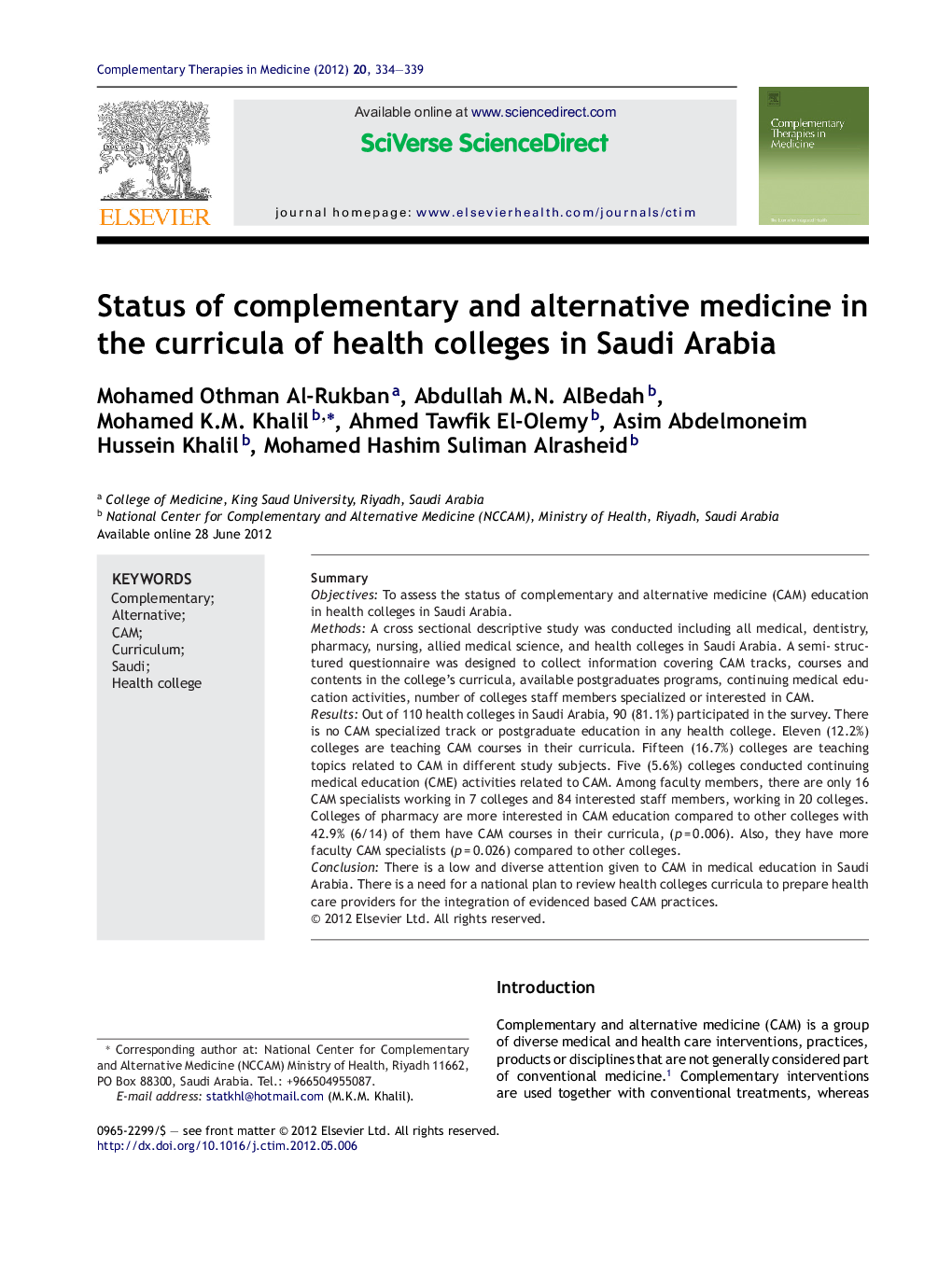| Article ID | Journal | Published Year | Pages | File Type |
|---|---|---|---|---|
| 2629109 | Complementary Therapies in Medicine | 2012 | 6 Pages |
SummaryObjectivesTo assess the status of complementary and alternative medicine (CAM) education in health colleges in Saudi Arabia.MethodsA cross sectional descriptive study was conducted including all medical, dentistry, pharmacy, nursing, allied medical science, and health colleges in Saudi Arabia. A semi- structured questionnaire was designed to collect information covering CAM tracks, courses and contents in the college's curricula, available postgraduates programs, continuing medical education activities, number of colleges staff members specialized or interested in CAM.ResultsOut of 110 health colleges in Saudi Arabia, 90 (81.1%) participated in the survey. There is no CAM specialized track or postgraduate education in any health college. Eleven (12.2%) colleges are teaching CAM courses in their curricula. Fifteen (16.7%) colleges are teaching topics related to CAM in different study subjects. Five (5.6%) colleges conducted continuing medical education (CME) activities related to CAM. Among faculty members, there are only 16 CAM specialists working in 7 colleges and 84 interested staff members, working in 20 colleges. Colleges of pharmacy are more interested in CAM education compared to other colleges with 42.9% (6/14) of them have CAM courses in their curricula, (p = 0.006). Also, they have more faculty CAM specialists (p = 0.026) compared to other colleges.ConclusionThere is a low and diverse attention given to CAM in medical education in Saudi Arabia. There is a need for a national plan to review health colleges curricula to prepare health care providers for the integration of evidenced based CAM practices.
